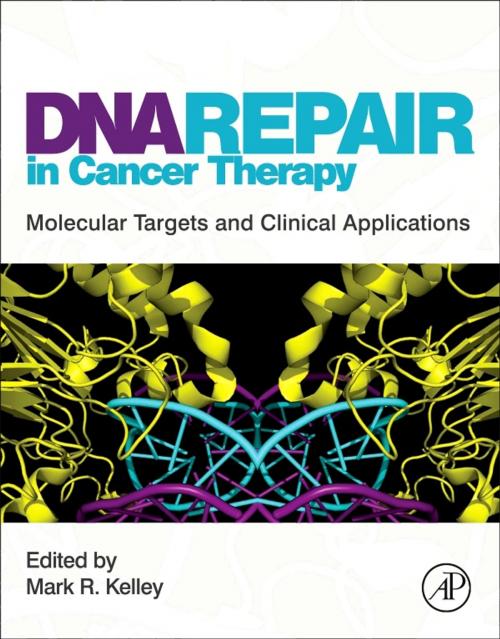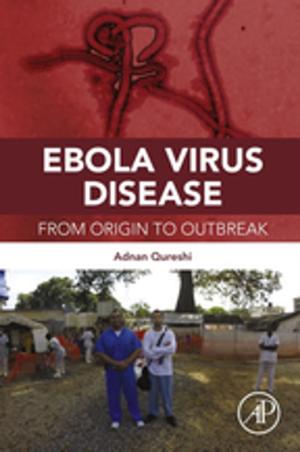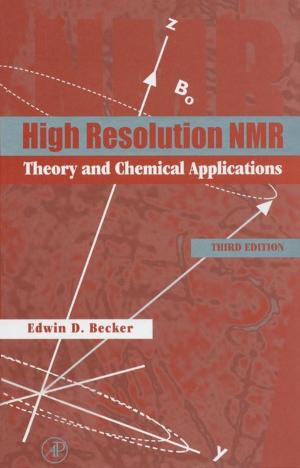DNA Repair in Cancer Therapy
Molecular Targets and Clinical Applications
Nonfiction, Health & Well Being, Medical, Medical Science, Pharmacology, Science & Nature, Science, Biological Sciences, Genetics| Author: | ISBN: | 9780123850003 | |
| Publisher: | Elsevier Science | Publication: | October 20, 2011 |
| Imprint: | Academic Press | Language: | English |
| Author: | |
| ISBN: | 9780123850003 |
| Publisher: | Elsevier Science |
| Publication: | October 20, 2011 |
| Imprint: | Academic Press |
| Language: | English |
Cancer therapeutics include an ever-increasing array of tools at the disposal of clinicians in their treatment of this disease. However, cancer is a tough opponent in this battle, and current treatments, which typically include radiotherapy, chemotherapy and surgery, are not often enough to rid the patient of his or her cancer. Cancer cells can become resistant to the treatments directed at them, and overcoming this drug resistance is an important research focus. Additionally, increasing discussion and research is centering on targeted and individualized therapy. While a number of approaches have undergone intensive and close scrutiny as potential approaches to treat and kill cancer (signaling pathways, multidrug resistance, cell cycle checkpoints, anti-angiogenesis, etc.), other approaches have focused on blocking the ability of a cancer cell to recognize and repair the damaged DNA that primarily results from the front-line cancer treatments; chemotherapy and radiation.
This comprehensive and timely reference focuses on the translational and clinical use of DNA repair as a target area for the development of diagnostic biomarkers and the enhancement of cancer treatment.
- Saves academic, medical, and pharmaceutical researchers time in quickly accessing the very latest details on DNA repair and cancer therapy, as opposed to searching through thousands of journal articles
- Provides a common language for cancer researchers, oncologists, and radiation oncologists to discuss their understanding of new molecular pathways, clinical targets, and anti-cancer drug development
- Provides content for researchers and research clinicians to understand the importance of the breakthroughs that are contributing to advances in disease-specific research
Cancer therapeutics include an ever-increasing array of tools at the disposal of clinicians in their treatment of this disease. However, cancer is a tough opponent in this battle, and current treatments, which typically include radiotherapy, chemotherapy and surgery, are not often enough to rid the patient of his or her cancer. Cancer cells can become resistant to the treatments directed at them, and overcoming this drug resistance is an important research focus. Additionally, increasing discussion and research is centering on targeted and individualized therapy. While a number of approaches have undergone intensive and close scrutiny as potential approaches to treat and kill cancer (signaling pathways, multidrug resistance, cell cycle checkpoints, anti-angiogenesis, etc.), other approaches have focused on blocking the ability of a cancer cell to recognize and repair the damaged DNA that primarily results from the front-line cancer treatments; chemotherapy and radiation.
This comprehensive and timely reference focuses on the translational and clinical use of DNA repair as a target area for the development of diagnostic biomarkers and the enhancement of cancer treatment.
- Saves academic, medical, and pharmaceutical researchers time in quickly accessing the very latest details on DNA repair and cancer therapy, as opposed to searching through thousands of journal articles
- Provides a common language for cancer researchers, oncologists, and radiation oncologists to discuss their understanding of new molecular pathways, clinical targets, and anti-cancer drug development
- Provides content for researchers and research clinicians to understand the importance of the breakthroughs that are contributing to advances in disease-specific research















